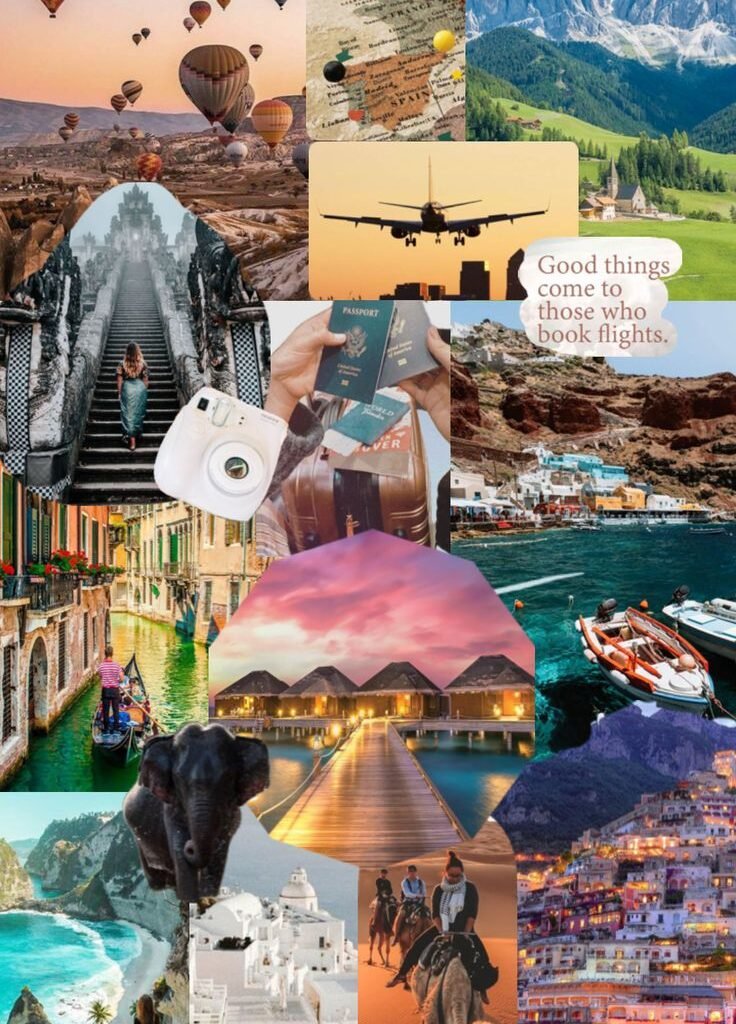On the Wings of Wandering: Travel as Art, Ordeal, and Revelation”
Introduction
If life has a pulse outside the ribcage, it must be a restless foot on an endless road. Travel is not merely moving from A to B; it is, first, a gentle shock to the soul, then a slow schooling of the feet, and finally a sudden birth of a new self inside an old one. In this essay we will walk together through three stations: “Art,” where travel becomes an aesthetic craft; “Ordeal,” where it turns into an existential test; and “Revelation,” where it unveils itself as a device for uncovering what is hidden in both world and self
.I. Travel as Art 1.
The Art of Choosing the Path
A route is not just a means to an end; it is a poem drawn on the face of the earth. When Ibn Battuta set out for Mecca via Egypt and the Levant, he was not looking for the shortest distance but for the richest stories. Choosing a path is an act of taste: do you lean toward the hush of deserts or the astonishment of cities? Toward the hush of waves or the whisper of mountains?
2. The Art of the Pack
A suitcase is a tiny library, a travelling pharmacy, and a portable museum all at once. An old Samarian rule says: “Lay out everything you want to take, then leave a third, then take only half of what remains.” The art is in the leaving—creating empty space for experience, not objects. Pack a needle and thread; in the farthest lands, sewing a button may be more useful than a smartphone.
3. The Art of Slow Seeing
A desert has a language you cannot read but only see; a forest has music you cannot hear but only smell; a city has a flavour you cannot taste but only touch. Stand before an old wall in Isfahan, run your fingers over its scars, then close your eyes and ask: “Who stood here a thousand years ago?” The answer will come as a tremor on your shoulder.
II. Travel as Ordeal
1. The First-Timer’s Fear
Before your foot touches the first platform tile, an existential dread appears: “What if I lose my passport?” This fear is legitimate; travel is a collision with the unknown measured not in kilometres but in memories. Remember Ibn Jubayr: “The shortest distance between two hearts is fear and hope, and the traveller lives between them.”
2. Language as Bridge and Wall
How many times have you tried to order coffee, gesturing at a cup while croaking “caffè” with all the throat you own? Language abroad is like a missing screwdriver in the middle of the night. Yet it is also a secret key: smile at the vendor and say “shukran” in your accent, and you’ll be rewarded with a smile that lights a dark corner of your soul.
3. Temporary Solitude as Soul Filter
In a tiny room on the banks of the Danube in Budapest, you may sit alone and hear your own laughter bounce off the wall. This moment is not punishment but gift: in a traveller’s silence questions grow that could never sprout inside safe walls. Write them in a small notebook; read them ten years later and you will meet yourself that night.
III. Travel as Revelation
1. Place as Mirror
Every country is a mirror, yet it reflects not your face but what is hidden within you. Italy will show you how fast you eat pesto, Japan will reveal the sound of your own pulse when the metro falls silent, and Morocco may teach you that you can sleep on an open rooftop under the stars and dream of nothing but a distant bell.
2. The Unexpected Return
On the tenth day of an Indian trip you may suddenly realise that “return” is not the opposite of “travel” but part of it. An Italian writer once came back from Beirut and found his narrow kitchen suddenly wide enough to hold the scent of coriander and hummus. Return, then, is not an ending but an extension: you now carry seeds the roads planted, and they will grow in your old soil with fruits you never knew.
3. A Question That Stays Open
When someone asks, “Where were you?” do not answer with the city’s name; say: “I was in a place between two times—before I saw and after I saw.” Thus travel remains an open question: do we travel to see the world, or for the world to see us?
ConclusionIn the end, travel is like love: it is not told in words but in the silence that follows them. It is an invitation to stand at every roadside and say, “It is not I who walks; the road walks me.” If you ever return to your old house, do not be startled if your window now opens onto a sea you have never seen; travel leaves its mark not only on your passport but on your eyes, which have become two open windows onto the infinite.
One Last Tip Before You Close Your Bag
Slip a small paper circle into your pocket: “What I have not yet seen is already seeing me.” Whenever you feel tired, remember that you are not looking for a place, but for a moment in which you meet yourself before you forget.



-
Tagged Eco-friendly, Medical Advances, Well-being